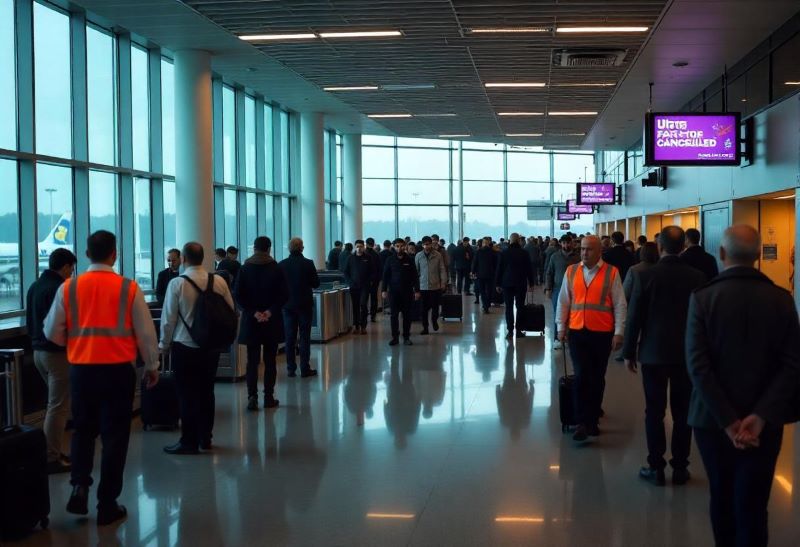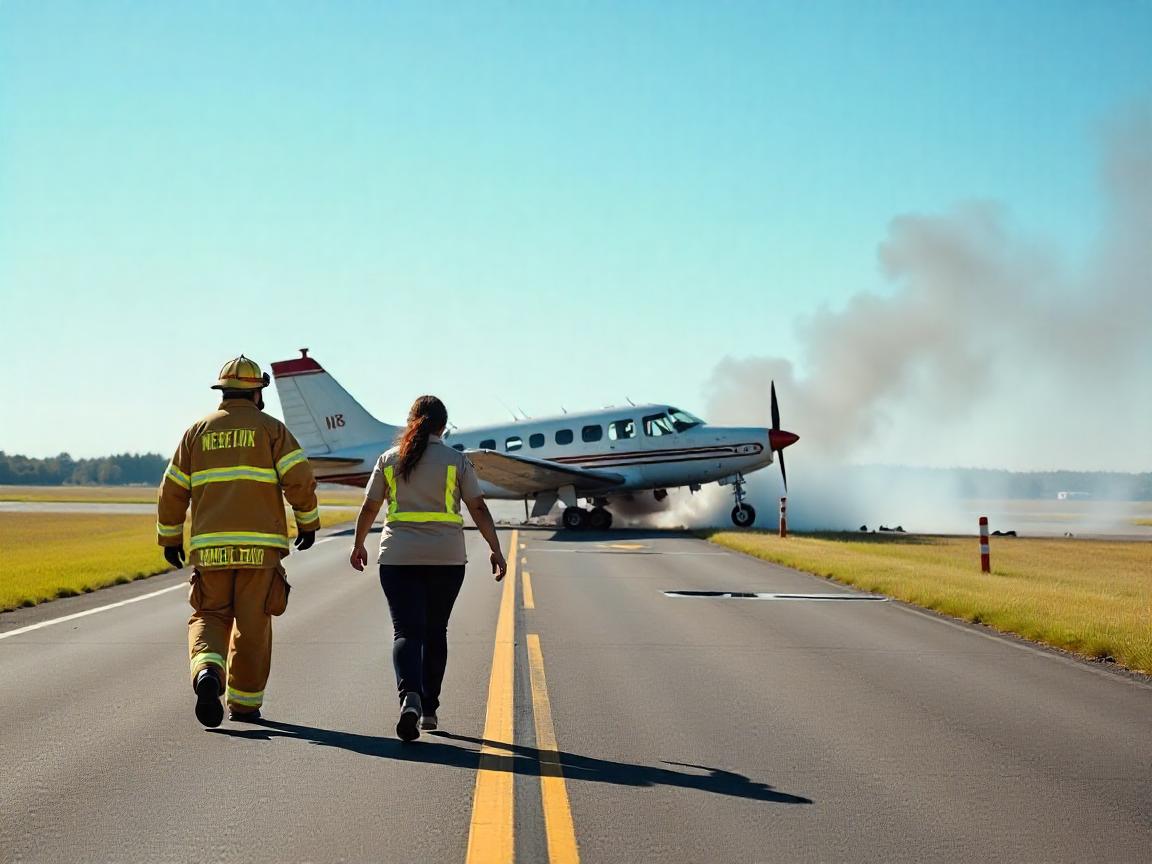Europe's Resilient Air Traffic: Growth At Major Airports Despite Geopolitical Challenges - Travel And Tour World
Tuesday, July 8, 2025

The transport sector in Europe remained incredibly resilient in May 2025 as passenger traffic rose by 3.4% compared to a year before despite economic and geopolitical setbacks. This was propelled largely by international traffic, which grew by 4.3%, while domestically, traffic declined by 0.2%. These data, released by Airport Council International (ACI) Europe, depict a contradictory but positive picture for Europe’s airborne travel market.
The performance of Europe’s airports varied widely, revealing both the enduring strength of certain key hubs and the struggles faced by others, particularly due to local factors such as high aviation taxes. London Heathrow, Europe’s busiest airport, recorded 7.2 million passengers in May, reflecting a modest increase of 0.4% year-on-year. However, this growth is somewhat constrained by Heathrow’s capacity limits, signaling that future growth may be harder to sustain unless further infrastructure expansions are made.
In contrast, Istanbul Airport saw a more robust growth rate, with passenger numbers reaching 7 million, a 2.6% increase from the previous year. Meanwhile, Paris Charles de Gaulle followed closely with 6.2 million passengers, up by 1.7%. These results highlight how some of Europe’s busiest hubs continue to show growth, though the pace may be slowing as they near their maximum capacity limits.
Rome Fiumicino also saw a strong performance, with passenger traffic increasing by 4.1%, further emphasizing the recovery of Italian airports in the post-pandemic landscape. Similarly, Barcelona’s El Prat Airport saw a 3.6% increase, and Munich Airport enjoyed a 3.2% boost, contributing to the overall growth across Southern and Western Europe.
ACI Europe pointed out that passenger growth was particularly significant in countries like Slovakia, Hungary, Poland, and Slovenia, which experienced double-digit increases in air travel. These nations have benefitted from an uptick in demand as people seek more affordable and less crowded alternatives to traditional Western European destinations. On the other hand, airports in Sweden, Switzerland, and Norway saw a decrease in year-on-year traffic, indicating a potential shift in regional air travel patterns.
Among the top European aviation markets, Italy saw the highest rise in passengers, with a 4.4% increase, followed by Spain (+3.3%) and the UK (+1.7%). However, ACI Europe noted that both Germany and France experienced notably lower growth, with increases of just 0.8% and 0.7%, respectively. This underperformance was attributed to high national aviation taxes, which have been seen as a burden on the aviation industry and a deterrent for travelers.
Olivier Jankovec, Director General of ACI Europe, explained that the overall resilience in passenger traffic was largely due to a shift in consumer behavior. “Consumers continue to prioritize travel and leisure, part of an underlying trend towards experiential consumption,” he said. This trend has been particularly evident as more Europeans opt for travel over material goods in the face of economic uncertainty.
However, the aviation sector’s growth has not come without challenges. Jankovec pointed to the ongoing issues that many airports face, including aircraft shortages, maintenance problems with airlines, and air traffic management disruptions. These factors have contributed to a bottleneck in air connectivity, which could hold back further expansion.
Moreover, geopolitical issues have had varied impacts on European airports. For some, such as those near Eastern Europe, certain geopolitical tensions have led to an increase in passenger traffic as travelers look to avoid areas of unrest. For others, particularly those with close ties to affected regions, the effects have been more negative, with concerns about flight cancellations and reduced frequencies.
One of the significant issues also highlighted in the report was the ongoing decline in air freight, which has seen a notable drop compared to the same month in 2024. While passenger traffic remains steady, air cargo has been more directly impacted by global economic pressures, with disruptions in supply chains continuing to affect demand for air freight services.
Looking ahead, the future of European air traffic remains uncertain. Jankovec acknowledged that it is “still to be seen” how geopolitical factors and the broader global economy will influence both consumer and business confidence. The rise in international flights could continue, as people seek to explore new destinations or return to familiar ones after years of pandemic restrictions. However, the aviation industry will have to adapt to new challenges, including potential increases in fuel prices, labor shortages, and ongoing environmental concerns.
Governments across Europe are working to balance the benefits of increased air traffic with the need to reduce environmental impacts. Many European countries are introducing policies to limit carbon emissions, such as aviation taxes or stricter regulations on flight frequencies, which could slow down growth in certain markets. However, these measures are also seen as necessary to ensure the long-term sustainability of the aviation sector.
Overall, Europe’s airline sector has been remarkably resilient in the face of uncertainties in geopolitics and economies. Passenger traffic has continued to rise—especially on international flights—leaving many European airports to bounce back from disruptions of the past few years. On the horizon is recovery, though, and there’s a bumpy road ahead as infrastructure shortages, national taxes, and global economic outlooks all have starring roles in defining airlines’ future. European airports, as recovery gains traction, will have to find a way to achieve continued growth while balancing needs of surging demand, geopolitics, and environmental pressures.
You may also like...
Diddy's Legal Troubles & Racketeering Trial

Music mogul Sean 'Diddy' Combs was acquitted of sex trafficking and racketeering charges but convicted on transportation...
Thomas Partey Faces Rape & Sexual Assault Charges

Former Arsenal midfielder Thomas Partey has been formally charged with multiple counts of rape and sexual assault by UK ...
Nigeria Universities Changes Admission Policies

JAMB has clarified its admission policies, rectifying a student's status, reiterating the necessity of its Central Admis...
Ghana's Economic Reforms & Gold Sector Initiatives

Ghana is undertaking a comprehensive economic overhaul with President John Dramani Mahama's 24-Hour Economy and Accelera...
WAFCON 2024 African Women's Football Tournament

The 2024 Women's Africa Cup of Nations opened with thrilling matches, seeing Nigeria's Super Falcons secure a dominant 3...
Emergence & Dynamics of Nigeria's ADC Coalition

A new opposition coalition, led by the African Democratic Congress (ADC), is emerging to challenge President Bola Ahmed ...
Demise of Olubadan of Ibadanland
Oba Owolabi Olakulehin, the 43rd Olubadan of Ibadanland, has died at 90, concluding a life of distinguished service in t...
Death of Nigerian Goalkeeping Legend Peter Rufai

Nigerian football mourns the death of legendary Super Eagles goalkeeper Peter Rufai, who passed away at 61. Known as 'Do...





